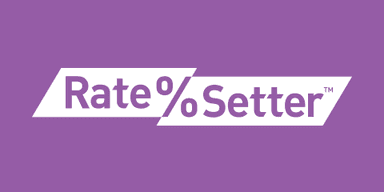Find your perfect loan
Compare loans and see the lowest rate available to you

Boost your chances of approval
No impact to your credit rating
Get an instant response

Financial Conduct Authority
Authorised & Regulated
We compare hundreds of loans from leading lenders







Guide to personal loans
What is a personal loan?
Personal loans are one of the most common types of loans, commonly taken out by people looking to make a one-off essential purchase. Unlike with a secured loan lenders won’t require you to secure the loan against your property as personal loans are usually for smaller amounts. However this doesn’t mean they are without risk, and your credit rating may determine the size of the loan you will be able to take out.
There are literally 100s of personal loans, which are sometimes known as unsecured loans, to choose from, and while they can be a solid option when looking for small amounts of money, the sheer number of personal loans available to you can make it hard to find the right deal.
Here we look at the benefits and disadvantages of personal loans, and show you the other options available to you.
Pros and cons of personal loans
Personal loans have many uses - be it a holiday, home improvement or a wedding. However they can also help you organise your finances by being used to pay off existing debts so you only have to make one repayment each month. This might not be the most cost-efficient way of simplifying your finances, however it can reduce the chances that you will miss a payment each month.
A cheap personal loan can also sometimes allow you to borrow more than you might be able to with a credit card. Interest rates on personal loans are often fixed (but not always, so make sure you check before applying for one), giving you the chance to put a plan in place to ensure you don’t fall behind on repayments.
Of course personal loan interest rates can often be quite high compared to secured loans. Be sure to check the details of the loan before you apply for it as well. Obviously this applies to any type of loan, but personal loans sometimes have early repayment charges, which are not ideal if you find yourself in a position to pay off your debt entirely.
A bad credit rating can also impact the amount you are able to borrow, so be aware that lenders will look at this when considering giving you a loan.
Alternatives to a personal loan
Before applying for any loan you need to consider exactly what you need need the money for and then take the time to look into other options available to you.
Are you hoping to buy a car? In this case you should definitely look into car finance loans.
Personal loans are sometimes used in order to pay off multiple debtors to simplify finances, however if this is your plan then a debt consolidation loan could help you.
Remember, a personal loan isn’t the only way to borrow small amounts of money. If you are looking to borrow £3,000 or less a credit card might actually offer a better interest rate than a personal loan. The longest 0% purchase card offer is 27 months, which means if you are going to borrow less than £3,000 and are confident that you can repay the full amount within 27 months then this might be a good option for you.
Things to remember
The amount of money you are able to borrow with a personal loan will be limited if you have a bad credit rating. If this makes you nervous then don’t worry, there are other ways you can borrow money.
Cards for people with poor credit are, as the name suggests, perfect for people in this situation. Using our comparison tool you can find which of these cards you are most likely to be accepted by.
As we have already said, people often consider personal loans a risk-free option when compared to secured loans because they are not taken out against your house. While they might appear less risky, if you take out a personal loan and fall behind on your repayments then you can be taken to court and received a County Court Judgement (CCJ). This seriously damages your credit rating, making it very hard to find credit cards or cheap personal loans that will accept you in the future.
When taking out a loan or getting a credit card it is important that you have a budget plan in place to ensure that you are able to make the repayments each month. You should also know the length of time it will take you to repay the money back in full, as the longer it takes the more interest you will be paying, making the loan more expensive.
Missing payments will have severe consequences and may make obtaining credit more difficult in the future.
If you decide to take out a homeowner loan, you agree that your personal details will be sent to a credit broker who will contact you by telephone and/or email to find out more about your requirements. This allows the broker to ensure you are introduced to loan products which meet your individual requirements and financial circumstances.
Should you choose to make an application, the broker will advise you of any arrangement fee you may be charged when you take out a loan.